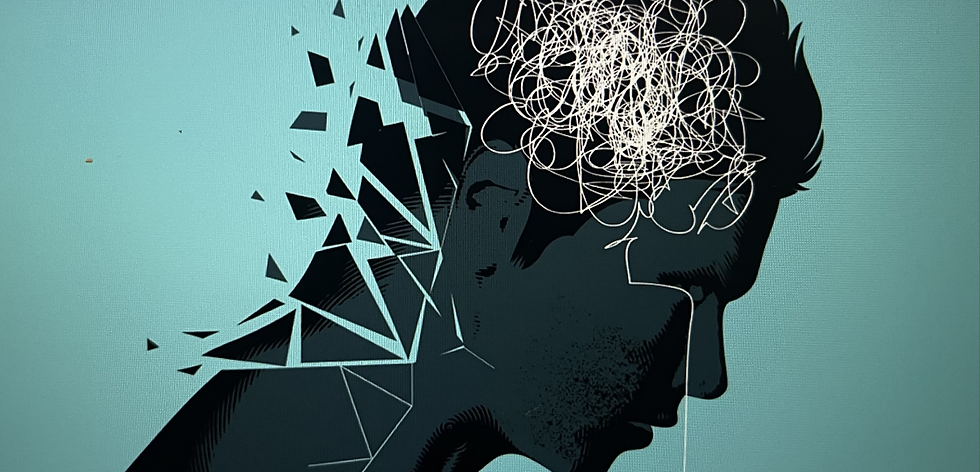DOOM OR REFORM: WHICH KIND OF PROPHET ARE YOU?
- Charles
- 4 nov. 2023
- 4 min de lecture
Reflections for the Thirty-first Sunday in Ordinary Time (Malachi 1:14b-2:2b, 8-10, 1 Thessalonians 2:7b-9, 13 & Matthew 23:1-12)

On 11th October 1962, while addressing the solemn opening of Vatican II, Pope John XXIII cautioned the Church about the danger of the prophets of doom. These are voices of those who cannot “see anything but ruin and trouble”, who “evaluate the facts of our word without sufficient objectivity or prudent judgment”, revel in ‘past’ glory and reject anything new”. He added, "We feel we must disagree with those prophets of gloom, who are always forecasting disaster, as though the end of the world were at hand". In this day and age of social media, the ‘noise’ of such prophets of doom seems to echo increasingly louder. We, as a society, seem to obsess over those who cry pessimistically about the state of the world, predict the worst, and trumpet the imminent fall of the ‘system’ as we know it. In contrast to this prophecy of doom, this Sunday’s liturgy presents us with the examples of Malachi, Paul and Jesus to propose an alternative model of reform. We highlight three differences between the models of doom and reform:
1. While the prophets of doom denounce, the prophets of reform denounce and announce:
Canadian Biblist Yves Guillemette underlines a crucial difference between the prophets of the Ancient Near East societies and those of Biblical Judaism. Prophecy of the Near Eastern culture, limited itself to twofold purposes: denouncing a particular action and outlining a punishment for the transgression. Biblical prophecy, on the contrary, is not preoccupied exclusively with denouncing and punishing but always includes a pedagogical dimension. The primary purpose of a prophet’s critique is to instruct and educate. In other words, the prophet’s role of denouncing the current state of affairs is always accompanied by the announcement of the divine call for restoration, revival, and radical conversion.

Prophecy of reform advocates a steady equilibrium between the denouncement of evil and the promise of a better future, between the consequences of sin and the hope of salvation. Malachi (first reading) and Jesus (Gospel) denounce the conduct of the religious leadership of their times and accuse them of disobedience, self-centred hypocrisy, faltering in their priority, and lack of pastoral care. However, their prophesies do not stop with curses. They also invite them to conversion. Malachi proclaims, “If you do not listen… if you do not lay it to heart… I will send a curse upon you”. Jesus tells his disciples to distinguish between their teaching and their example. His bitter critique of the conduct of the Scribes and the Pharisees aims at educating them with an alternative vision of true leadership, where service is valued above exaltation, and brotherhood is sought more than masterhood.
2. Being a prophet of doom is lucrative while being a prophet of reform is a responsibility:
The job of a prophet of doom is easy because he does not normally worry about the consequences of what he announces. The more anti-establishment, anti-conformist, and counter-social the prophecy is, the more it becomes lucrative. Sadly, however, such prophesies only cause chaos and instability and do little to contribute anything constructive. Their critique “of the system” does not follow any plan of action to address the crises. Prophecy of reform, on the other hand, has to suggest an alternative plan of action and propose ideas, methods, deadlines, and targets.

A prophet of reform is aware of his/her responsibility towards the community. Unlike the prophets of doom, he needs to be precise, informed, and objective, support his claims and plans with data, and above all, accompany his community. He needs to heal wounds, move forward, and inspire efforts of renewal. The prophetic ministry of Jesus and the biblical prophets were held as controversial not so much for their severity but for the responsibilities they endowed on the prophets and the community alike. They were invitations to walk the difficult path of conversion, to swallow the bitter pill of change, and to accept responsibilities for a hopeful future. While biblical prophecy does involve renunciations, criticisms, and condemnations, they are spoken with charity and clarity to inspire hope and change.
3. Prophets of doom draw attention to themselves while prophets of reform focus on God:
Prophets of doom, while adapting a hermeneutics of deconstruction, often seek to dominate and control others, cancel the system, and build a fan following centred on themselves. Biblical prophecy, on the other hand, as evident from its Greek etymology prophēteía involves speaking in front of God and speaking in the name of God. Paul, (second reading), cites the example of his own ministry, which prioritized proclaiming “not a human word but, as it truly is, the word of God”. As spokespersons of God, we exercise Christ’s prophetic ministry, helping people analyse their personal, ecclesial, and social lives through the optic of God and share the vision of God for the world.

What we are called to proclaim is not our ideologies, agendas, or opinions but God’s kingdom. Our prophetic vocation involves our active engagement with the contemporary life situations of our people. To be a prophet means to form the future of your community. It involves interpreting the signs of the times to call the people in our pastoral care to Christian responsibility, to a different future filled with hope. Of course, prophetic ministry involves renunciations, criticisms, condemnations, etc but always with charity and love to inspire hope and change. Are we going to be prophets of doom or prophets of reform? Is our prophecy obsessed with denouncing alone or do we dare to announce? Do we exercise our prophetic ministry with responsibility? Do our prophecies draw attention to ourselves or to God?




Commentaires